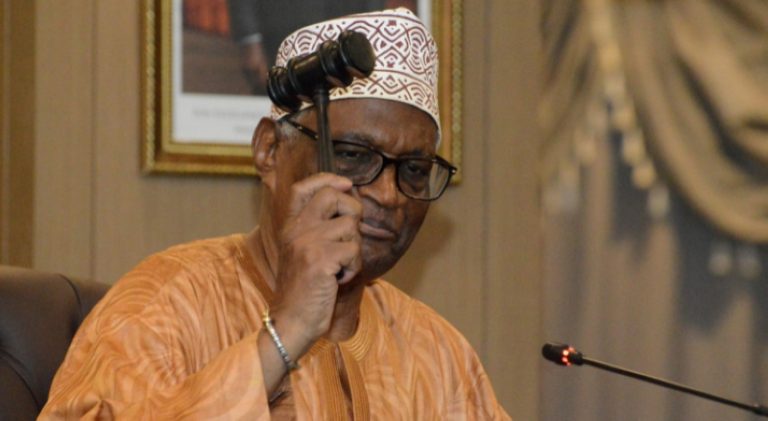Togo Strengthens Dynastic Rule as Gnassingbé Ally Takes Senate Helm
Editorial : Reda El Gazal
Electing Barry Moussa Barqué, an 82-year-old loyalist of President Faure Gnassingbé, as Senate chief, Togo’s new upper house entrenches ruling-party control following constitutional reforms that abolish direct presidential votes.
The 2024 overhaul shifts executive power to a parliamentary-appointed “President of the Council of Ministers”
a role Gnassingbé now holds-while reducing the presidency to ceremonial status. Critics decry the move as a bid to extend his 19-year rule, mirroring his father’s 38-year reign until 2005. Barqué, a veteran strategist for both leaders, will oversee a Senate designed to consolidate legislative authority through appointed and indirect elections.
Opposition groups label the reforms a facade for “one-family rule,” while the ruling UNIR party claims they foster inclusive governance.
Regional watchdogs warn of democratic decline in West Africa, citing recent coups and prolonged leaderships. As Gnassingbé prepares to formalize his empowered role, tensions rise over Togo’s political trajectory amid fading checks on dynastic power.
-

The Geopolitical Landscape of the Sahel: The End of Algerian Dominance and the Rise of Morocco
Edited By: Africa EyeA recent article by Jeune Afrique highlights significant shifts in the geopolitical landscape of the Sahel region,... Geopolitical Analysis -

Algeria – France: “Libération” reveals the behind-the-scenes role of the Rector of the Great Mosque of Paris
Edited By: Africa EyeIn a detailed investigation published last Friday, the French daily Libération shed light on the discreet yet... Politics -

France issues international arrest warrant for former Algerian diplomat over opposition figure kidnapping
Edited By : Africa Eye with AgenciesA French judge has issued an international arrest warrant for a former diplomat at... Politics -

Niger – Morocco: High-Level Meeting to Strengthen Military and Strategic Cooperation Between the Two Countries
Edited By : Widad WahbiAs part of efforts to enhance international cooperation, the National Center for Strategic and Security Studies... Regional and international cooperation -

Guinea-Bissau: President Embaló Dismisses Prime Minister Ahead of Presidential Election
Edited By : Tendai Zola Guinea-Bissau's President Umaro Sissoco Embaló dismissed Prime Minister Rui Duarte Barros on Thursday, replacing him with... Politics -

Nigeria Issues Urgent Flood Alert for 19 States as Heavy Rains Loom
Edited By : Tendai Zola Nigeria’s Federal Ministry of Environment has issued a critical flood alert for 19 states amid forecasts... Environment

 Follow the latest news on WhatsApp
Follow the latest news on WhatsApp  Follow the latest news on Telegram
Follow the latest news on Telegram  Follow the latest news on Google News
Follow the latest news on Google News  Follow the latest news on Nabd
Follow the latest news on Nabd 


















